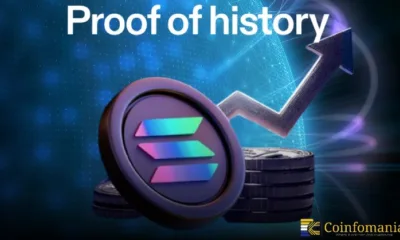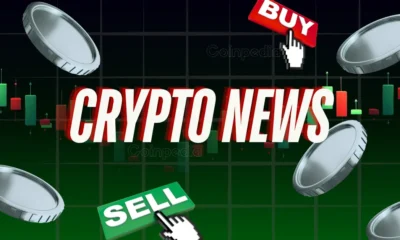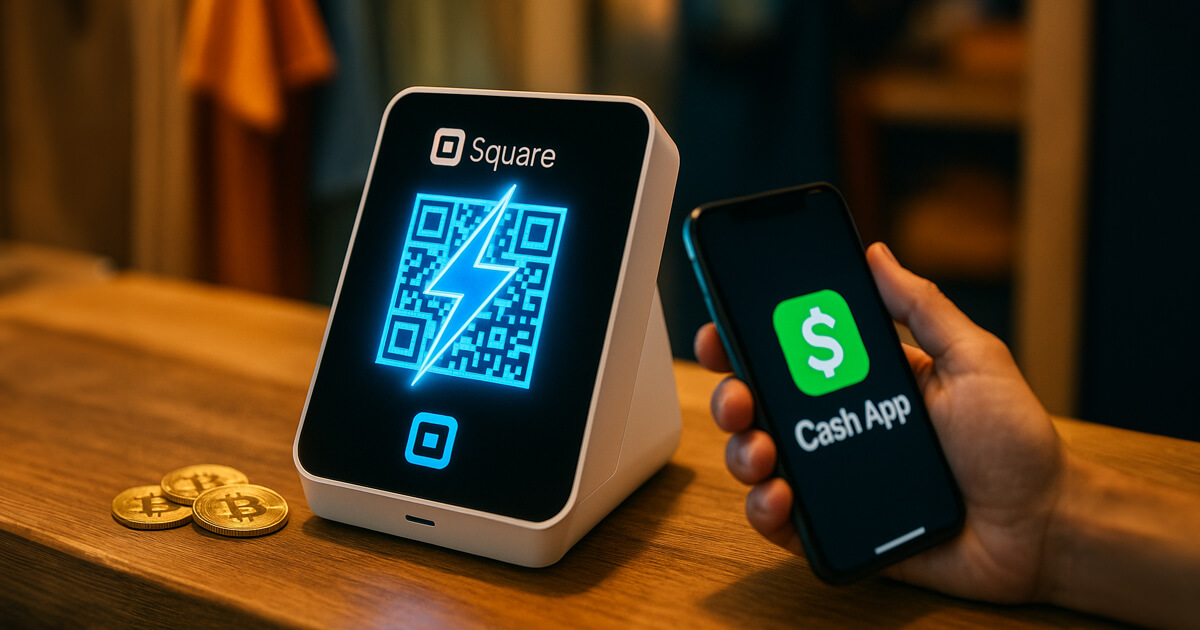Blockchain
Blockchain voting restores trust in modern elections
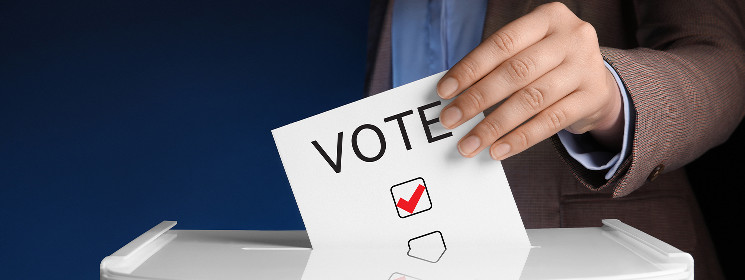
Credit : cryptonews.net
Does your nation run free and honest elections? How have you learnt? Do you belief the outcomes? Are you happy with the way it organizes voting and results-gathering, or is there room for enchancment?
Democracy as a subject is within the headlines always this yr, with nationwide elections in a number of of the world’s most influential international locations. Expertise is enjoying an ever-greater function, from voting machines to poll scanners and digital tallying. Whether or not you discover this matter controversial or would merely favor a extra environment friendly course of with totally provable and auditable outcomes, blockchain presents a possible answer that each one democratic governments ought to think about.
The ‘belief problem’ with elections nowadays
Saying there are rising “belief points” with elections and voting within the twenty first century could be… an understatement. In america, we went from punch machine “hanging chads” and courtroom challenges in 2000 to outright riots over the ends in 2016 and 2020. Voting machine expertise has confronted transparency complaints. Ultimate outcomes are delayed, packing containers filled with hard-copy ballots could or could not have been counted. Claims of equity or dishonest and disparaging opponents’ claims typically rely on whether or not your most popular facet received or misplaced, and never a severe examination of the processes. And that’s simply the U.S.—Europe has additionally had its share of post-election “colour revolutions,” accusations of “rigged” referendums, and different manipulations of course of.
Whether or not you personally assume fashionable elections are “free and honest,” rigged, or one thing in between, it’s clear there are hundreds of thousands of individuals on the market who really feel their energy as voting residents in a democracy is being eroded. New voting applied sciences are launched to hurry up outcomes, however with out a lot public enter into the way it’s accomplished. At stake is each voter’s small share of management over main army choices, financial insurance policies, environmental controls, and basic cultural adjustments that instantly affect our lives.
Individuals want to have extra potential to audit outcomes and maintain electoral officers to account. Since smartphones turned ubiquitous, we’ve seen proof of this want in social media posts each election cycle, calling for individuals to “selfie their poll“—that’s, take a photograph of their poll as proof they voted the best way they did. In international locations the place ballots are marked with pencils or by punch machines, we see recommendation for voters to make their alternative clearer.
There are some apparent issues with self-recording a poll for auditability. One is that not sufficient individuals would do it to have any affect on a disputed final result. One other is that it connects a vote to a person id—it is a unhealthy thought because it might be utilized by unhealthy actors participating in vote-influencing/shopping for. It could even be unlawful in some jurisdictions for the latter purpose.
Whereas we’re at it, we’d nonetheless prefer to get pleasure from any advantages digital and networking applied sciences deliver to the method. Digital outcomes might be quick and even instantaneous. There wouldn’t be instances of newly-discovered poll packing containers or claims of a number of ballots per particular person.
Blockchain’s immutable (and auditable) information
What we’d like is a course of the place a verified (real-life and eligible) particular person can forged a digital vote that’s inconceivable to alter after the very fact (i.e., an immutable file). That file additionally verifies the person has voted, and solely as soon as. The everlasting file should join the person to their vote, however how they voted shouldn’t be viewable to anybody aside from that voter.
Does this sound like a tough drawback? Really, it isn’t. Blockchain expertise is completely able to performing these capabilities. In a long-form article printed on X, Brendan Lee described a system for capturing election information on a blockchain as “potential (even straightforward).”
“Crucially, the system prevents observers from connecting any particular person voter to the poll paper they utilized by separating the registries and randomising the distribution of poll papers,” he wrote. This additionally depends on “a sturdy voter enrolment system which is precisely maintained.”
https://t.co/VKxdXdlODR
— Brendan Lee (@Brendan_Lee__) October 21, 2024
Each eligible voter could be issued a single-use digital token, permitting them to vote on a pc or cell gadget. Below Lee’s system, the precise poll may nonetheless be paper—the voting token could be invalidated immediately as they obtain their paper from electoral officers. Every poll paper is exclusive and printed with its personal figuring out QR code to stop copy. Voters file their vote with a pen or pencil, and the poll (together with its QR code) will get scanned and photographed, which “prompts” the vote and information the selection in an immutable file.
Outcomes will be tabulated as quickly because the poll is scanned. Randomized distribution of ballots prevents the invention of any connection between the voter and their voting alternative. Poll papers remaining unused on the shut of voting are additionally registered as such (since they will’t be activated with no legitimate voting token from a novel particular person, nobody else may use it).
If anybody has any doubts about this course of, keep in mind that comparable methods are used for paper money. Each invoice has a novel serial quantity and different authentication options, however these aren’t tied to the particular person spending it. QR codes are literally extra pseudonymous since they’re not human-readable.
If it’s so good, why hasn’t blockchain voting been launched already?
Using blockchain information for auditable elections is a transparent use case, even perhaps a no brainer for individuals who perceive what the expertise can do. So, it raises the query: why is blockchain voting not a factor in 2024? Some potential causes could be:
1. The present socio-political local weather has produced a populace skeptical of any introduction of recent and poorly understood applied sciences into elections;
2. Resolution-makers themselves have a restricted understanding of what blockchain is able to, and/or how reliable it truly is (this drawback shouldn’t be distinctive to elections);
3. It requires a level of technological entry and proficiency amongst voters (to handle eligibility tokens) that not each citizen has;
4. Blockchain, with potential unexpected issues/dangers, remains to be seen as too cutting-edge. An lack of ability to scale or transact affordably at excessive capability is a significant one right here;
5. There isn’t (but) one particular blockchain everybody trusts for the duty;
6. There’s nonetheless a level of reliance on human integrity within the course of;
7. The extra cynical take: our governments don’t truly need auditable voting.
Let’s disregard factors #6-7 for now since they’re a politically charged and divisive can of worms, and every deserves its personal separate dialogue. We should always be aware there are nonetheless loads of international locations on this planet the place voting stays paper-only, and it is because the onerous copy is auditable to a level most individuals belief (not less than in idea).
The continued existence of paper-only ballots suggests each electoral officers and most people are skeptical of recent election applied sciences. Nonetheless, many jurisdictions have embraced digital voting machines of varied varieties for this goal regardless of lingering considerations about their integrity. A few of these problem a paper receipt, and a few don’t (once more given that it may join a person to their vote in a human-readable approach).
Due to this fact, present digital voting methods would appear like a poor answer in comparison with what blockchain can obtain, but deployment of those methods is rising. That would seem to nullify the primary two factors, not less than in locations the place these machines are broadly used. The problem stays a really controversial one.
Expertise-related points
Factors #3-5 will doubtless clear up themselves as time passes. Even right this moment, it’s tough to completely perform in society with out a point of technological entry/proficiency. Information of blockchain and its capabilities grows yearly.
Factors #4-5 are issues the blockchain business itself should clear up. Lee estimates 250 million registered voters in america, requiring not less than 500 million transactions inside 12 hours (one for the voting token, one to register the vote).
BSV is already quick and scalable. It’s about to turn into much more so with the activation of Teranode, which may course of a number of billions of transactions each hour. Its community is, due to this fact, in a position to course of all electoral transactions on high of its common day by day capabilities. Lee mentioned the transaction prices for a single U.S. nationwide election might be as little as US$1,000 on the blockchain facet, plus the prices of printing/scanning paper ballots.
“As a result of the system is so easy, will probably be straightforward to teach individuals on the ideas and concepts at play,” Lee added.
What’s the scenario for blockchain voting in the actual world?
CoinGeek requested Lee about his personal private expertise constructing a workable on-chain voting system and any hurdles he encountered.
“The toughest half is getting the concept accepted,” he mentioned. “We had a prototype referred to as Resolution Level. I truly generated about 50 ballots and 50 right-to-vote tokens for individuals. It was to vote on which sandwich was greatest. But it surely was very handbook and gradual. Took me a number of hours to do a number of tokens. However they labored.”
Would it not have been onerous to construct and scale a system that carried out quick sufficient to deal with elections? “For certain,” Lee added. “It will not be onerous to do—like, it’s tremendous straightforward.”
He mentioned the Australian Electoral Fee (AEC) had proven curiosity in constructing a blockchain-based voting system up to now, however had “discovered that it didn’t work.”
“They tried to make it about id and signatures. However if you learn the laws, you’ll be able to’t have any of that. So, in fact, it didn’t work, and the AEC went again to paper.”
99% of “blockchain builders” don’t understand you don’t want to make use of signatures if the appliance doesn’t require them, Lee added. A digital ID per se isn’t vital for this to work. In truth, below his proposed answer, “you don’t want any ID, however it can solely be as safe as your voter rolls.”
The system might be constructed with any jurisdiction in thoughts, becoming with its native rules, Lee mentioned.
“You construct it to fulfill the necessities of the laws. The voter doesn’t have to signal the token. The particular person handing them the poll indicators to say they’ve handed them a poll. That’s probably not wanted, but it surely’s a pleasant back-stop.”
In the end, “it can come all the way down to the laws in every place we construct it for.” And if somebody within the BSV or wider blockchain business can construct a workable system, “there isn’t a purpose the 2028 USA election couldn’t be on-chain in not less than 10 states, after which nationwide in 2032.”
The choice: beginning out smaller
One technique is to trial a blockchain voting course of at smaller organizations somewhat than try and promote it to nationwide electoral commissions first. There, the chosen expertise can show itself in locations and on points with much less at stake (i.e., much less more likely to trigger riots if one thing goes awry).
One other Australian who’s spent years fascinated by blockchain voting is Eli Afram. After growing a system referred to as “b-vote”, he determined to make use of the expertise in a product referred to as AnonSurvey, aimed not at large-scale elections however at on a regular basis polls and surveys. This type of demonstration assists in fixing issues #4-5 as individuals uncover blockchain voting advantages by truly utilizing them.
AnonSurvey’s homepage says 130 purchasers have used the instrument to this point, and outcomes have been favorable.
“We’ve been utilizing it for varied small-scale operations,” Afram mentioned. “I feel individuals are simply extra thinking about it than real-world-scale utilization. (We’ve) received somebody now who’s simply wanting to make use of it for his enterprise. It’s received some enterprise scope.”
A quick, scalable blockchain with the capability to deal with excessive transaction volumes—like BSV—is ideal for the duty of making certain digital voting is free, honest, and totally auditable by each voters and electoral officers. The query is not whether or not we must always use this expertise in elections of any significance however how. Whether or not it’s a full package deal able to pitch to governments or an easier type prepared for testing in additional mundane polls, the duty (as all the time) is for a gifted developer with a very good understanding of the necessities to construct an illustration mannequin that reveals what it may do.
It could take some time, and as we’ve famous above, there are a number of hurdles and boundaries to beat. A few of them will not be evident on the floor. Nonetheless, with main points at stake and extra new applied sciences creeping into the democratic course of yearly, what is obvious is the necessity to construct and preserve belief. Belief shouldn’t be a tough promote, but it generally will be.
Watch: Blockchain & Metanet’s function in combating pretend information
title=”YouTube video participant” frameborder=”0″ permit=”accelerometer; autoplay; clipboard-write; encrypted-media; gyroscope; picture-in-picture; web-share” referrerpolicy=”strict-origin-when-cross-origin” allowfullscreen=””>
-
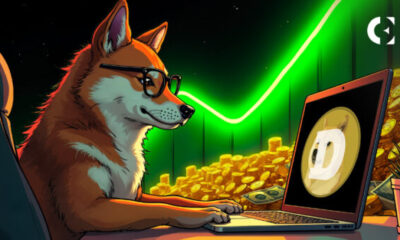
 Meme Coin8 months ago
Meme Coin8 months agoDOGE Sees Massive User Growth: Active Addresses Up 400%
-

 Blockchain1 year ago
Blockchain1 year agoOrbler Partners with Meta Lion to Accelerate Web3 Growth
-

 Videos1 year ago
Videos1 year agoShocking Truth About TRON! TRX Crypto Review & Price Predictions!
-

 NFT11 months ago
NFT11 months agoSEND Arcade launches NFT entry pass for Squad Game Season 2, inspired by Squid Game
-

 Meme Coin1 year ago
Meme Coin1 year agoCrypto Whale Buys the Dip: Accumulates PEPE and ETH
-

 Solana5 months ago
Solana5 months agoSolana Price to Target $200 Amid Bullish Momentum and Staking ETF News?
-
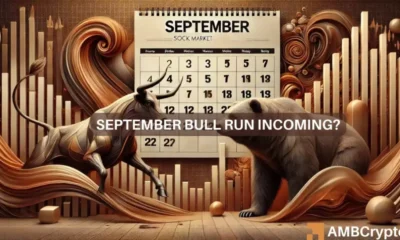
 Ethereum1 year ago
Ethereum1 year ago5 signs that the crypto bull run is coming this September
-

 Videos4 months ago
Videos4 months agoStack Sats by Gaming: 7 Free Bitcoin Apps You Can Download Now

